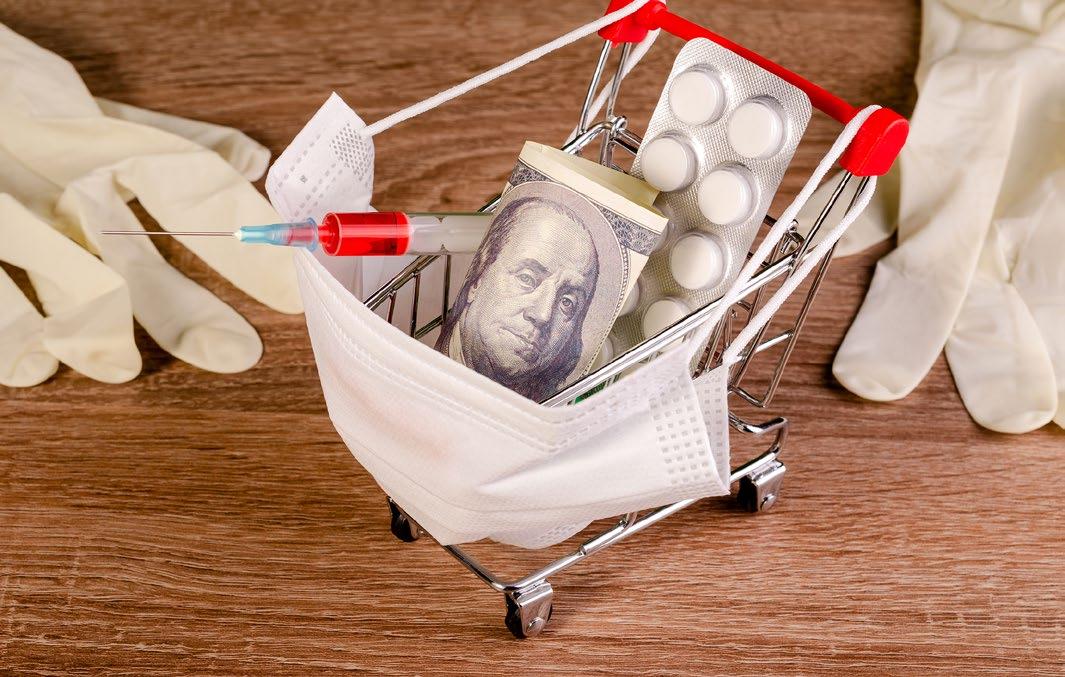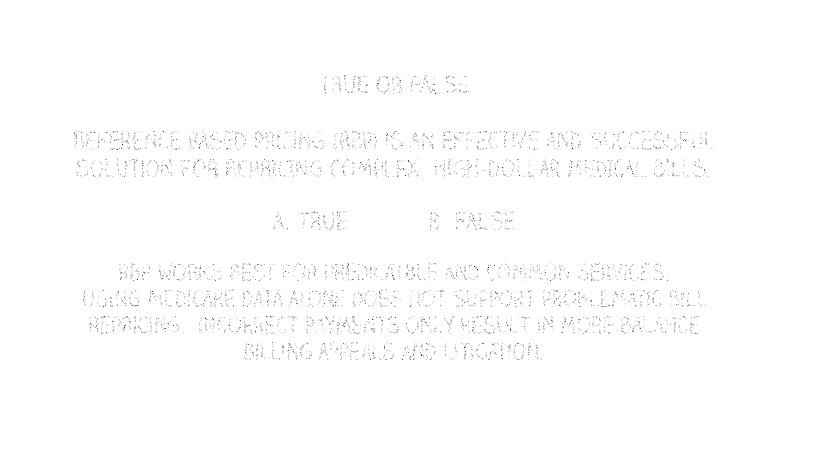
5 minute read
BE READY FOR THE DRUG PRICING DEBATE TO RETURN WITH A BANG
by SIPC
AAs 2020 dawned, one of the fiercest debates around containing healthcare costs pivoted on addressing the runaway prices of prescription drugs. In May of 2018, the Trump administration first floated their “blueprint” to lower drug prices, but hit a number of walls, legal and political. BE READY FOR THE DRUG PRICING DEBATE TO RETURN WITH A BANG
Written By Nicholas Bonds, Esq. Meanwhile, Congress labored on a number of pieces of legislation to curtail drug prices, with House Democrats’ approach culminating in the Elijah Cummings Lower Drug Costs Now Act.
Advertisement
Named for the late Baltimore Democrat who pressed the Trump administration to do more to rein in drug costs, the bill was designed to empower the federal government to negotiate Medicare drug prices directly. The bill would have also placed a cap on the out-of-pocket prescription drug costs paid by those covered by Medicare Part D, while expanding dental, vision, and hearing coverage for Medicare recipients.
Though far from perfect, the legislation was ambitious policy and it received broad support from Democrats. Meanwhile, Republicans in the House and Senate released their own drug pricing plans, both echoing the Democrats’ approach of tuning up Medicare Part D.
The House Republicans’ policy package, the Lower Costs, More Cures Act, included a suite of transparency measures and caps on insulin costs. Senate Republicans’ Prescription Drug Pricing Reduction Act imposed penalties for price increases above inflation for Medicare Part B and Part D drugs, and capped expenses for seniors, among other things.
While there was no consensus on the precise approach, there was virtually universal acceptance that the American people wanted to see movement on drug pricing reform.
Even so, partisan gridlock kept any of those bills from becoming law. The dust up did, however, lead President Trump to put even greater pressure on HHS Secretary Alex Azar to get the ball rolling on their plan to encourage state importation of a significant number of cheaper Canadian prescription drugs – one of the many steps laid out in the aforementioned blueprint to reduce drug prices. The President then doubled down on his renewed push for drug pricing legislation at the most recent State of the Union, using his address to make the issue one of the central planks in his 2020 election platform.
Drug pricing discussions have taken a back seat to the more pressing pandemic. The federal government has understandably been more focused on dealing with the dual health and economic crises of unprecedented scale.
To that end, the Families First Coronavirus Response Act (“FFCRA”) and Coronavirus Aid, Recovery, and Economic Stimulus (“CARES”) Act were passed rapidly and with wide-ranging bi-partisan support. Together, these laws took steps to ensure Americans receive testing and treatment for COVID-19, but the financial toll of contracting the virus will still be a devastating blow to most individuals.
The world may have a year or longer to wait for a vaccine to prevent COVID-19, and nascent treatments for the virus have yet to be perfected.
While some therapies are showing promise (even some involving llamas), no treatment has received quite so much of the limelight as remdesivir. An experimental drug developed by Gilead Sciences, remdesivir has received the blessing of White House coronavirus task force member Dr. Anthony

Fauci, and been granted an emergency use authorization (“EUA”) by the Food and Drug Administration.
Effectively, this EUA means that under the FFCRA and CARES Act, health plans will be required to cover this therapy, but an unanswered question lingers: How much does remdesivir cost?
Gilead Sciences has yet to set the price for its drug, though the company has donated 1.5 million doses. The drug maker faces a difficult decision, needing to balance the development costs and potential profits of remdesivir against the desperate public need for viable treatments. Estimates of the drug’s prospective price vary wildly.
The Institute for Clinical and Economic Review (“ICER”), a Boston-based nonprofit that performs cost analyses on medical treatments, released a recent report estimating that a “cost recovery” pricing model may run as low as $10 for a ten-day course of treatment. To complicate matters, Gilead Sciences may actually have a viable patent on remdesivir, so until other therapies are developed the company may have a governmentbacked monopoly on the treatment of COVID-19.

Alternatively, under a more traditional “costeffectiveness” pricing model, ICER estimates place the cost of that same course of treatment closer to $4,500.
The development of the drug, however, may well have been at least partially subsidized by federal money. Gilead previously faced a similar situation with their HIV treatment Truvada – which led the government to sue for a license to the drug.
Gilead Sciences will have to balance public opinion, social responsibility, their own finances, and the potential government response as they consider how to price remdesivir, as will any other drug maker who develops a treatment for COVID-19.
Whatever price point Gilead settles on, the fallout from their decision will certainly linger. A drug this high profile, coming along amid a global emergency, cannot help but reignite the drug price debate. It may be a slow burn – that debate may need to be tabled until the pandemic is under control, maybe even beyond the 2020 election – but the fuse is most certainly lit.
Nicholas Bonds, Esq. joined The Phia Group, LLC as an attorney in the winter of 2018. He is a member of Phia Group Consulting’s Independent Consultation & Evaluation (ICE) team, working on consultation, plan document review, and regulatory compliance with state and federal laws including ERISA, ACA, HIPAA, COBRA, FMLA and more.
Nicholas attended McMurry University in Abilene, Texas, graduating cum laude with his B.A. in History. He earned his Juris Doctor at New England Law where he was a member of the Intellectual Property Law Association and the International Law Society, and graduated with an intellectual property concentration. He is licensed to practice in the Commonwealth of Massachusetts.

Only WellRithms has the medical, legal, and data expertise to accurately review medical bills. Start saving REAL dollars, and experience the WellRithms difference today.
Find out more at www.wellrithms.com











